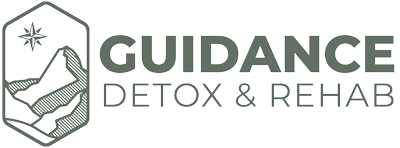Quitting alcohol cold turkey—abruptly stopping alcohol consumption without tapering or medical supervision—is a decision many people struggling with alcohol addiction consider, but this approach carries serious risks and can lead to dangerous side effects. Understanding the dangers of quitting alcohol cold turkey is essential for anyone attempting to quit drinking, especially those with a history of heavy drinking or severe alcohol use disorder.
This article will explore the potential risks and withdrawal symptoms associated with quitting alcohol cold turkey, explain why medical supervision under proper alcohol addiction treatment is crucial, and offer safer alternatives for those seeking lasting recovery.

What Does Quitting Alcohol Cold Turkey Mean?
Quitting alcohol cold turkey means abruptly stopping alcohol intake without gradually reducing consumption or seeking medical help. While this might seem like a straightforward way to end alcohol misuse, it can trigger intense alcohol withdrawal symptoms due to the body’s dependence on alcohol.
For individuals with alcohol dependence or severe addiction, suddenly stopping alcohol can trigger dangerous withdrawal symptoms, some of which may be life-threatening. That’s why quitting cold turkey without medical supervision is risky. The safest and most effective path to recovery involves medically supervised alcohol detox in an addiction treatment center. Taking that first step with evidence-based care can lead to lasting sobriety and a healthier, more stable life.
Understanding Alcohol Withdrawal and Its Timeline
When someone with chronic alcohol use abruptly stops drinking, their body reacts to the sudden absence of alcohol, causing alcohol withdrawal syndrome (AWS). The alcohol withdrawal timeline typically begins within 6 to 24 hours after the last drink and can last for several days or even weeks, depending on the severity of dependence.
Symptoms of alcohol withdrawal vary widely but often include:
- Tremors (shakes)
- Sweating
- Nausea and vomiting
- Anxiety and irritability
- Insomnia
- Increased heart rate and blood pressure
For some, severe alcohol withdrawal symptoms may develop, including seizures and delirium tremens (DTs)—a severe form of alcohol withdrawal characterized by confusion, hallucinations, fever, and cardiovascular instability. DTs are considered one of the most dangerous side effects of alcohol withdrawal and require immediate medical attention.
The Dangers of Quitting Alcohol Cold Turkey
Quitting alcohol cold turkey poses serious health risks, particularly for individuals with a history of heavy or prolonged drinking. Abruptly stopping alcohol can lead to intense withdrawal symptoms such as tremors, anxiety, nausea, and insomnia. In more severe cases, it may trigger seizures or delirium tremens, a potentially fatal condition marked by confusion, hallucinations, and high fever.
Additional complications can include dehydration, electrolyte imbalances, and worsening of existing health issues. Because of these dangers and the increased risk of relapse, it is strongly recommended to seek medical supervision when ending alcohol use.
Who is at Risk for Severe Withdrawal?
Not everyone who stops drinking cold turkey will experience severe withdrawal, but certain factors significantly increase the risk. These include long-term, heavy drinking or chronic alcohol misuse, a history of previous severe withdrawal episodes or delirium tremens, and co-occurring mental health or physical illnesses.
Older age and poor overall health also contribute to a higher likelihood of complications. People with a history of alcohol withdrawal syndrome or severe alcohol use disorder, especially those who regularly consume large amounts, are at the greatest risk for dangerous withdrawal symptoms.
Why Medical Supervision is Essential
Healthcare professionals can closely monitor vital signs and withdrawal symptoms, provide medications to alleviate discomfort and prevent complications, and safely manage severe alcohol withdrawal symptoms. They offer crucial support and guidance to help ease the alcohol cessation process and start the individual’s long-term recovery from alcohol addiction.

Safer Ways to Stop Drinking Alcohol
Experts recommend safer alternatives like tapering under medical supervision. This approach, often supported with prescribed medications, helps manage withdrawal symptoms and reduce cravings.
Combining detox with addiction treatment programs, including counseling and behavioral therapies like cognitive behavioral therapy and motivational interviewing, addresses both the physical and emotional sides of recovery.
Ongoing support from healthcare providers, support groups, or organizations like the Motivational Interviewing Network of Trainers can also provide crucial motivation and coping tools along the way.
Tips for Quitting Alcohol Safely
- Consult a healthcare professional before stopping alcohol.
- Never attempt to quit drinking cold turkey alone if you have a history of heavy or chronic drinking.
- Be aware of the signs of alcohol withdrawal and seek immediate help if severe symptoms appear.
- Engage in a comprehensive treatment plan that addresses both physical and psychological aspects of addiction.
- Build a support network to help maintain motivation and commitment to recovery.
Final Thoughts from Guidance Detox and Rehab
While the desire to stop drinking alcohol quickly is understandable, quitting alcohol cold turkey carries serious and sometimes life-threatening risks. Quitting alcohol cold turkey can be dangerous, especially after prolonged use. That’s why medically supervised detox is a critical first step in safe, effective recovery.
At Guidance Detox & Rehab in Utah, we provide comprehensive detox programs designed to manage withdrawal symptoms and reduce health risks, laying the foundation for deeper therapeutic work. Surrounded by a peaceful mountain setting, our facility provides the clarity, stability, and support necessary to embark on your journey toward lasting wellness.
